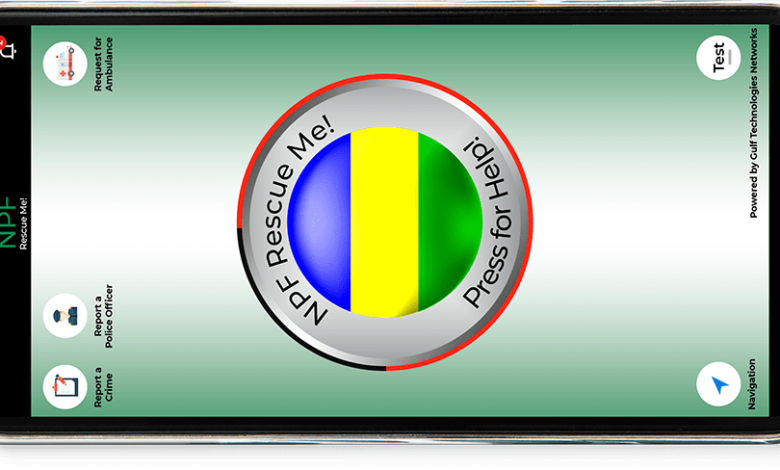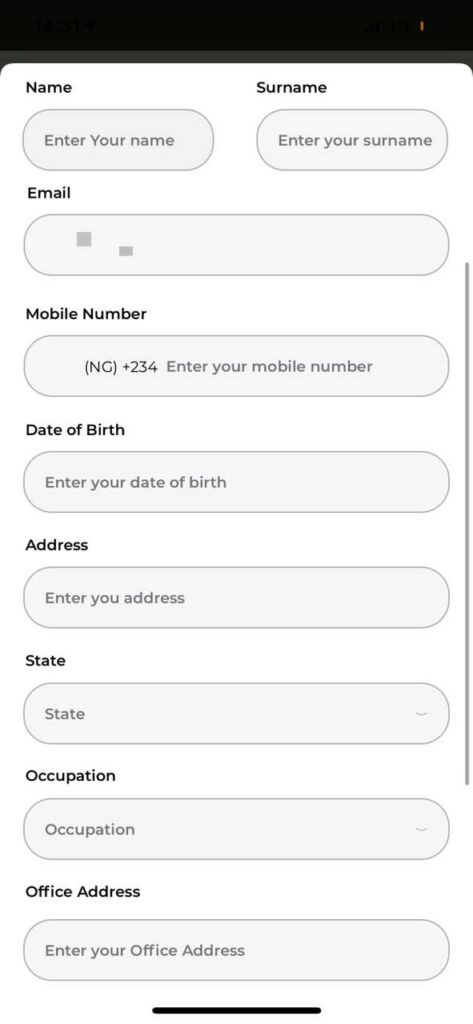Nigeria Police Creates Rescue App But There Are Concerns Over Privacy
The Nigeria Police Force Rescue Me application, which was created to foster rapid response and mitigation of crime, requires that users give out personal information, a request which experts and users find problematic.

In 2021, the Nigeria Police Force (NPF) created an emergency application named NPF Rescue Me. According to the Police, the application was created to connect the Force to the general public to foster rapid response to crimes and emergency situations.
With interesting features such as the emergency alert, the Report Crime, the Navigation, the Contacts Add, the Report A Police, and the Request An Ambulance feature, the app promises to be quite helpful, but there is just one issue; data privacy concerns.
“They are asking for too much private information”
While installing the application on a mobile phone, it immediately requests permission to access the location, camera, photos, microphone and contacts of the user. It also requires that users fill out other personal data such as date of birth, address, state, name, mobile number, surname, email address, office address, and occupation.
Users perceive these requests to be untoward and invasive.
Ayomide Bello,a user in Abuja, told HumAngle that the only request she accented to was the app’s request to access her location. “That was the request I felt was necessary, because they need to know my location to be able to come and rescue me.”
Zainab Abubakar, a 27 year-old user in Abuja on the other hand did not complete the installation process. “After I got the OTP, I did not go further because I was asked to fill in a lot of information about myself, down to my occupation. It made me afraid,” she explained.
Ayomide and Zainab think the application is a tad invasive and they are not the only ones that hold this view. Some people have taken to social media to register their misgivings with the perceived breach of privacy that the app has come with.
One user named Fakolade Ayodeji, complained that the app was “asking for too much private information during registration and requesting access to camera, photos and location.”

A Twitter user simply identified as Adesoji shared a series of screenshots from the app, asking “security experts to take a look at the screenshots and clarify the safety of my information.”
HumAngle reached out to Adesoji to know if he had gone on to use the application, but he said that he never got to use it, as he halted the installation process when the app asked to access his photos. He also deleted the app from his mobile phone, he told HumAngle.
When asked if he would recommend the application to anyone, Adesoji said he would do so only if he sees “changes in the privacy statement, terms and conditions.
The initiative is quite nice and applaudable, my concerns are how the data accessed can and will be used,” he added.
Police say there is nothing to worry about
Muyiwa Adejobi, Nigeria Police Public Relations Officer, was not available to clarify concerns raised by Nigerians when he was contacted by HumAngle.
However, a call agent at the Inspector General of Police Complaints Unit, Police Headquarters, Abuja, addressed the concerns of the users.
According to the agent who declined to give his name, users of the app have nothing to fear as the Police only use the data obtained to provide help.
The agent further said that every data collected by the application is essential and would help the Police provide needed help to persons using the application. When this reporter informed him that users may have misgivings particularly with allowing the application access to their photos, he wondered why people would have such misgivings when they “post their pictures on different social media platforms.”
He also likened the NPF Rescue Me application to Facebook, pointing out that it equally demands access to pictures and other data, explaining that access to photos of users will enable the police to identify users who are in danger, emphasising that the data will be used for that purpose only.
HumAngle sought to speak with the National Information Technology Development Agency (NITDA), on the issue but all efforts to reach the agency via phone calls and email proved abortive. NITDA is an agency of the Nigerian government concerned with issues bordering on data protection and sundry technological matters.
Experts say there is no data protection framework in Nigeria
Khadijah El-Usman, a digital rights activist with Paradigm Initiative, commended the efforts by the police especially with the introduction of the App. But she said sharing of people’s data can ruin one’s life when misused.
“They are trying to do the best that they can with what they have and catch up with the time but unfortunately, Nigeria has undertaken a lot of data collection initiative such as NIMC,BVN,FRSC and NYSC, without a data protection law, considering that a lot of this biometric data being shared can potentially ruin a person’s life when misused,” El-Usman told HumAngle.
She noted that Nigeria has about four data protection bills at the National Assembly which are yet to be passed, pointing that the Nigeria Data Protection Regulation (NDPR) which is supposed to cater to matters of data protection would hardly suffice in this case, as it is basically restricted to businesses.
“They (NDPR) do not have the powers to sanction Federal Government agencies should there be a breach, so there would be no consequences per say,” the activist said.
“There would be no legal consequences on the Police should there be breach of data use.”
El-Usman emphasised that the only “real protection” which users of the app can fall back on is the section of the constitution (section 36) that caters to privacy. But this part of the Nigerian constitution is not as solid as one may like it to be, she argued.
She maintained that the section of the constitution is not all encompassing which would make the process of trying to prove the extent of this sort of data breach very difficult.
“It definitely puts the Nigeria Police Force in a very tight position when it comes to this application that they have created and the data that they have collected,” she concluded.
Adeboye Adegoke, another data privacy advocate who spoke to HumAngle regarding the concerns of persons using the App said he would not advise people to use the mobile app. This he says, is because the Nigeria Police has not proven itself to be trustworthy coupled with the absence of solid protection for data shared by users of the application.
“We do not have a data protection framework in Nigeria where people can seek redress and protection when something goes wrong,” Adegoke said.
“We see the Police stop people on the road and force them to open their mobile phones with their passwords. This is the nature of the Police we are talking about.”
Adegoke disclosed that he was speaking out of personal experience as he had experienced first hand harassment from operatives of the Nigeria Police.
“I was harassed by the Police last Saturday,” he recalled. They randomly double crossed the car I was in, jumped in front of it, and ordered us to come down. They forced me to open the two bags I had with me and proceeded to search the bags. They also asked me to open my phone as well… Is this the Police that I should trust with my data?”
Adegoke said there is no reliable data protection framework (that defines what should be done and what should not be done) in Nigeria.
He explained that a data framework would afford people the confidence to use the mobile app even if, like him, they lack confidence in the Nigeria Police as an institution.
Support Our Journalism
There are millions of ordinary people affected by conflict in Africa whose stories are missing in the mainstream media. HumAngle is determined to tell those challenging and under-reported stories, hoping that the people impacted by these conflicts will find the safety and security they deserve.
To ensure that we continue to provide public service coverage, we have a small favour to ask you. We want you to be part of our journalistic endeavour by contributing a token to us.
Your donation will further promote a robust, free, and independent media.
Donate HereStay Closer To The Stories That Matter




